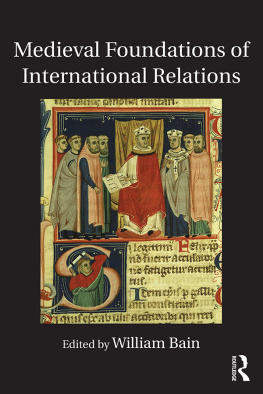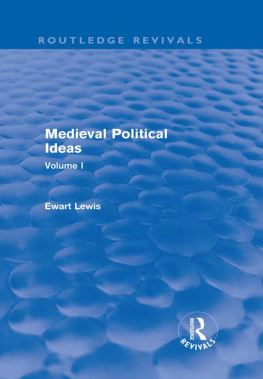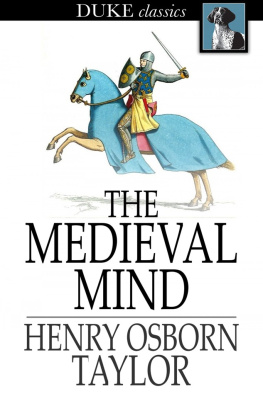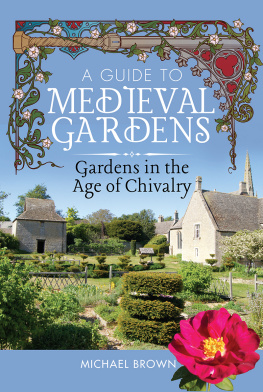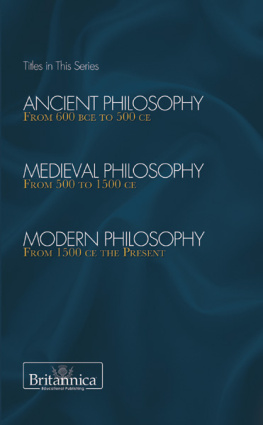Medieval Foundations of International Relations
This edited volume explores the medieval inheritance of modern international relations. Most international political thought focuses on the early modern and modern periods, leaving connections with medieval experience largely ignored. Evidence of continuity is obscured when the word medieval amounts to little more than a synonym for backwardness or cruelty. To be medieval is to be ignorant and regressive, the remedy of which is modern enlightenment and progress. This volume corrects this common misconcep-tion by showing that modern international thought is deeply entangled in medieval ways of thinking.
Questions addressed include:
How is the medieval important for thinking through aspects of modern international relations?
What is the medieval influence on modern conceptions of sovereignty, law, and rights?
To what extent is modern international relations genuinely secular?
Does medieval experience provide suitable models for the organisation of modern international political life?
Is international relations an reflection of a modern Middle Ages?
Medieval and modern are certainly different in crucial ways; however, this volume proceeds from the conviction that cardinal institutions and practices of modern international relations are bound up in a medieval inheritance that has been put to new uses. It is an inheritance that has been adapted to the changed circumstances of the modern world. This volume will be of great interest to students of international relations, international political theory, and the history of political thought.
William Bain is an Associate Professor in the Department of Political Science, National University of Singapore. His research engages questions of international political theory and International Relations theory, with a specific focus on the theological foundations of international relations.
Medieval Foundations of International Relations
Edited by
William Bain

First published 2017
by Routledge
2 Park Square, Milton Park, Abingdon, Oxon OX14 4RN
and by Routledge
711 Third Avenue, New York, NY 10017
Routledge is an imprint of the Taylor & Francis Group, an informa business
2017 selection and editorial material, William Bain; individual chapters, the contributors
The right of William Bain to be identified as author of the editorial material, and of the individual authors as authors of their contributions, has been asserted by them in accordance with sections 77 and 78 of the Copyright, Designs and Patents Act 1988.
All rights reserved. No part of this book may be reprinted or reproduced or utilised in any form or by any electronic, mechanical, or other means, now known or hereafter invented, including photocopying and recording, or in any information storage or retrieval system, without permission in writing from the publishers.
Trademark notice: Product or corporate names may be trademarks or registered trademarks, and are used only for identification and explanation without intent to infringe.
British Library Cataloguing in Publication Data
A catalogue record for this book is available from the British Library
Library of Congress Cataloging in Publication Data
A catalog record for this book has been requested
ISBN: 978-1-138-79579-2 (hbk)
ISBN: 978-1-315-75821-3 (ebk)
For R. W. Dyson
William Bain is an Associate Professor in the Department of Political Science, National University of Singapore. He has published widely in the areas of international political theory, international relations theory, and the history of political thought. He is the author of Between Anarchy and Society: Trusteeship and the Obligations of Power (2003) and editor of and contributor to The Empire of Security and the Safety of the People (2006). He is currently working on a research monograph, Political Theology of International Order, which is a part of a larger project that explores the medieval influence on modern international relations.
Camilla Boisen is Postdoctoral Research Fellow in Political Theory at the University of the Witwatersrand, Johannesburg, South Africa. Her research focuses on colonial political thought, particularly the development of ideas of rights and trusteeship, and their influence on contemporary problems such as post-colonial restitution. She has published in History of European Ideas and Grotiana; and she is co-editor of Distributive Justice Debates in Political and Social Thought: Perspectives on Finding a Fair Share (2015), with Matthew C. Murray.
David Boucher is Professor of Politics and International Relations at Cardiff University, and Distinguished Visiting Professor at the University of Johannesburg. He is a Fellow of the Learned Society of Wales, the Academy of Social Sciences, and the Royal Historical Society. He has held fellowships at Oxford University; Sun Yat Sen University, Taiwan; Canterbury University, New Zealand; and Australian National University. He has published numerous books and articles in a wide range of areas, including history of thought in international relations, political theory, British Idealism, and popular culture. Among his publications are Political Theories of International Relations (1998); British Idealism and Political Theory (with Andrew Vincent, 2000); and The Limits of Ethics in International Relations (2009). He has just completed a book on the legacy of Hobbes in Politics, Law and International Relations.
Joseph Canning is Affiliated Lecturer in the History Faculty, University of Cambridge. Previously, having been Lecturer in History at the University of Queensland, Australia, he was Reader in History at Bangor University and Director of the British Centre at the Max-Planck-Institut fuer Geschichte in Goettingen. His publications include The Political Thought of Baldus de Ubaldis (1987), A History of Medieval Political Thought, 3001450 (1996), Ideas of Power in the Late Middle Ages, 12941417 (2011), and four edited volumes. He is writing a book on the construction of ideas of authority, c. 1350c. 1650.
James Turner Johnson is Distinguished Professor of Religion at Rutgers University. His research and teaching focuses principally on the historical development and application of the Western and Islamic moral traditions on war, peace, and statecraft. His books include Ethics and the Use of Force (2011), The War to Oust Saddam Hussein (2005), Morality and Contemporary Warfare (1999), Just War Tradition and the Restraint of War (1981), and most recently, Sovereignty: Moral and Historical Perspectives (2014). He is also co-editor (with Eric Patterson) of The Ashgate Research Companion to Military Ethics (2015).
Joshua Mitchell is Professor of Political Theory at Georgetown University. His research interest lies in the relationship between political thought and theology in the West. He is the author of Not by Reason Alone: Religion, History and Identity in Early Modern Thought (1993), The Fragility of Freedom: Tocqueville on Religion, Democracy, and the American Future (1995), Platos Fable: On the Mortal Condition in Shadowy Times (2006), and most recently, Tocqueville in Arabia: Dilemmas in a Democratic Age (2013). He is currently working on a book manuscript entitled Reinhold Niebuhr and the Politics of Hope.
James Muldoon is a medieval legal and ecclesiastical historian. He is Professor Emeritus at Rutgers, and a Researcher-in-Residence at the John Carter Brown Library. He has written or edited a number of books and articles dealing with the interaction between Christians and non-Christians. His books include
Next page
